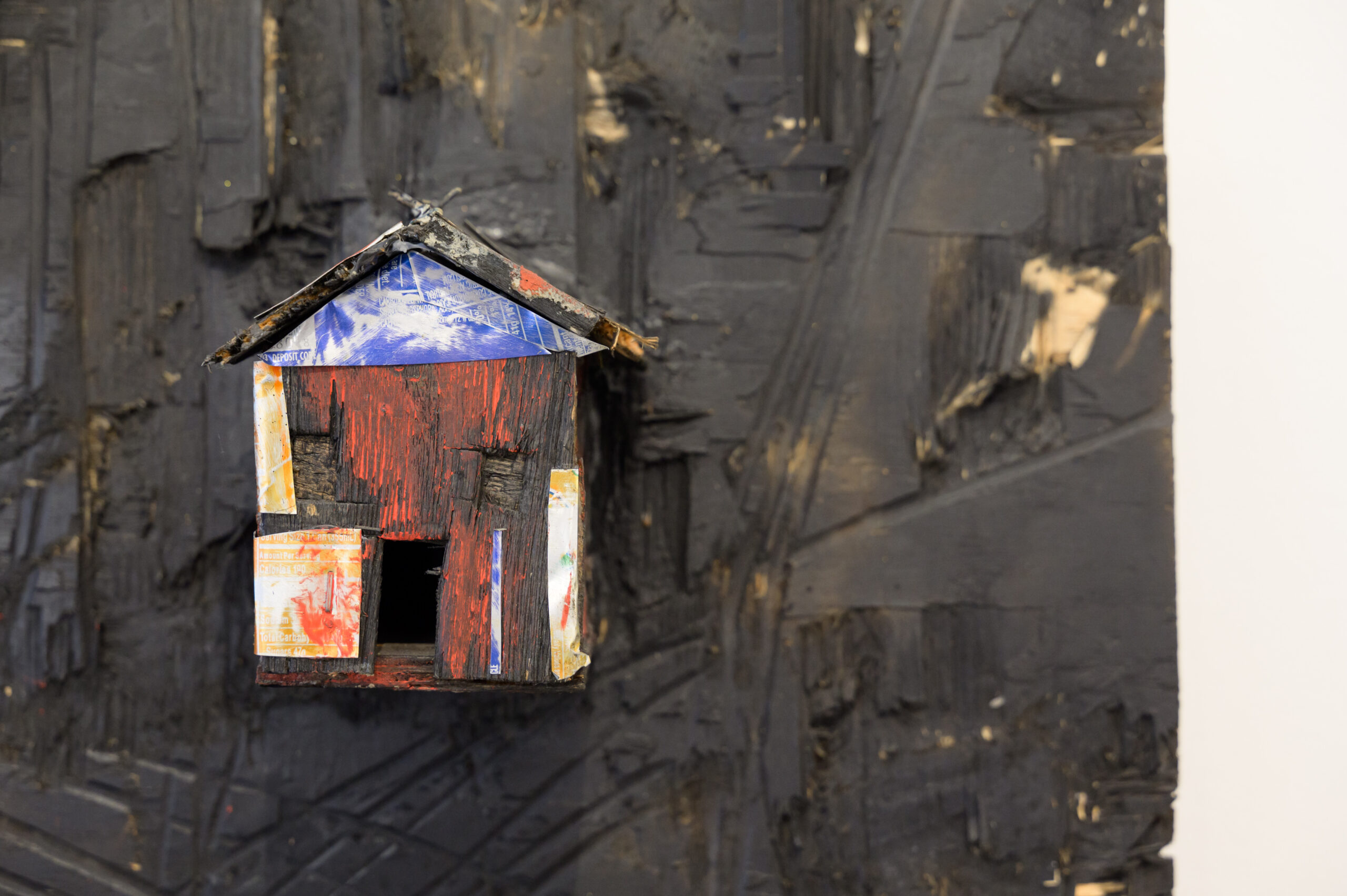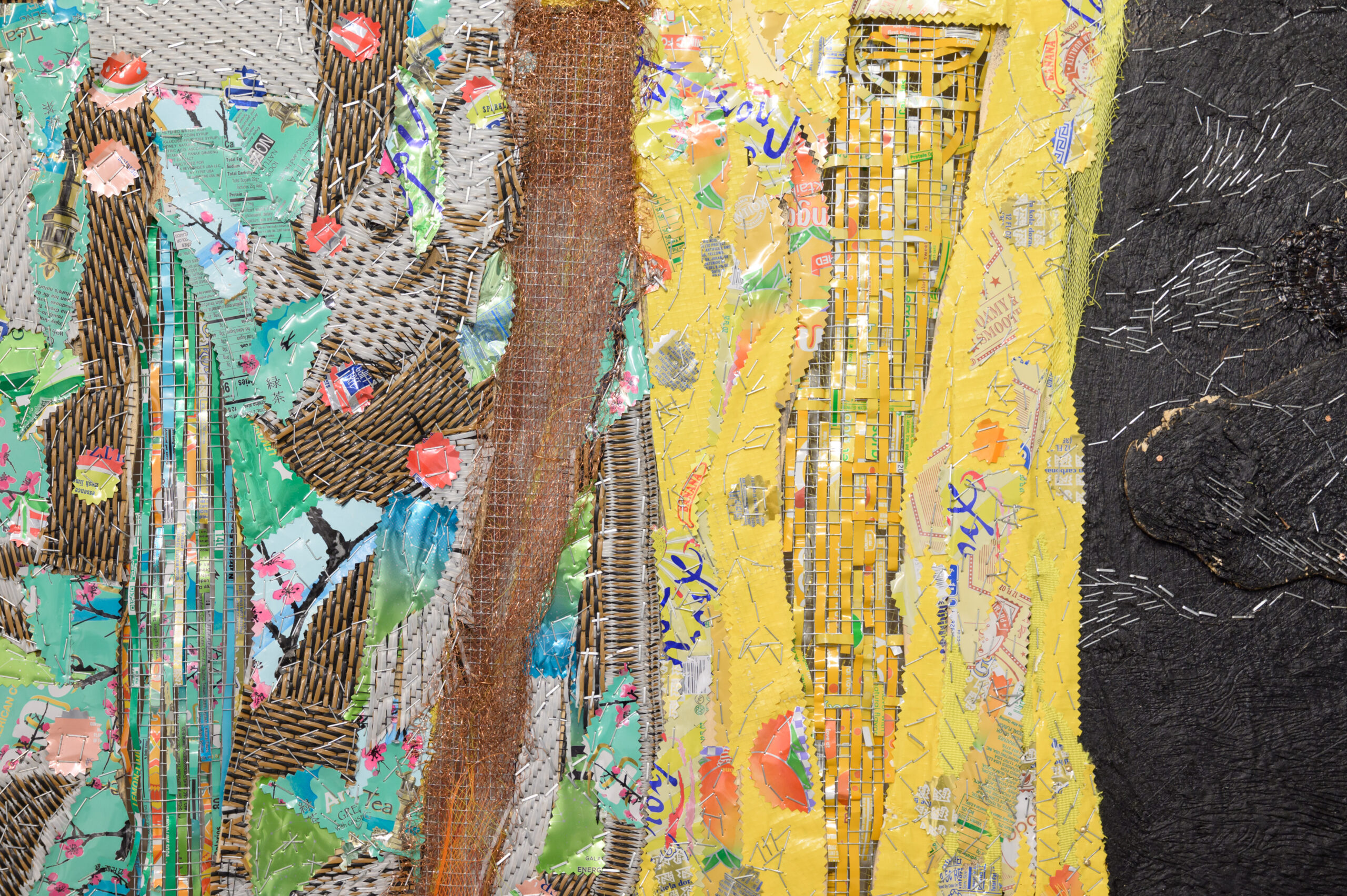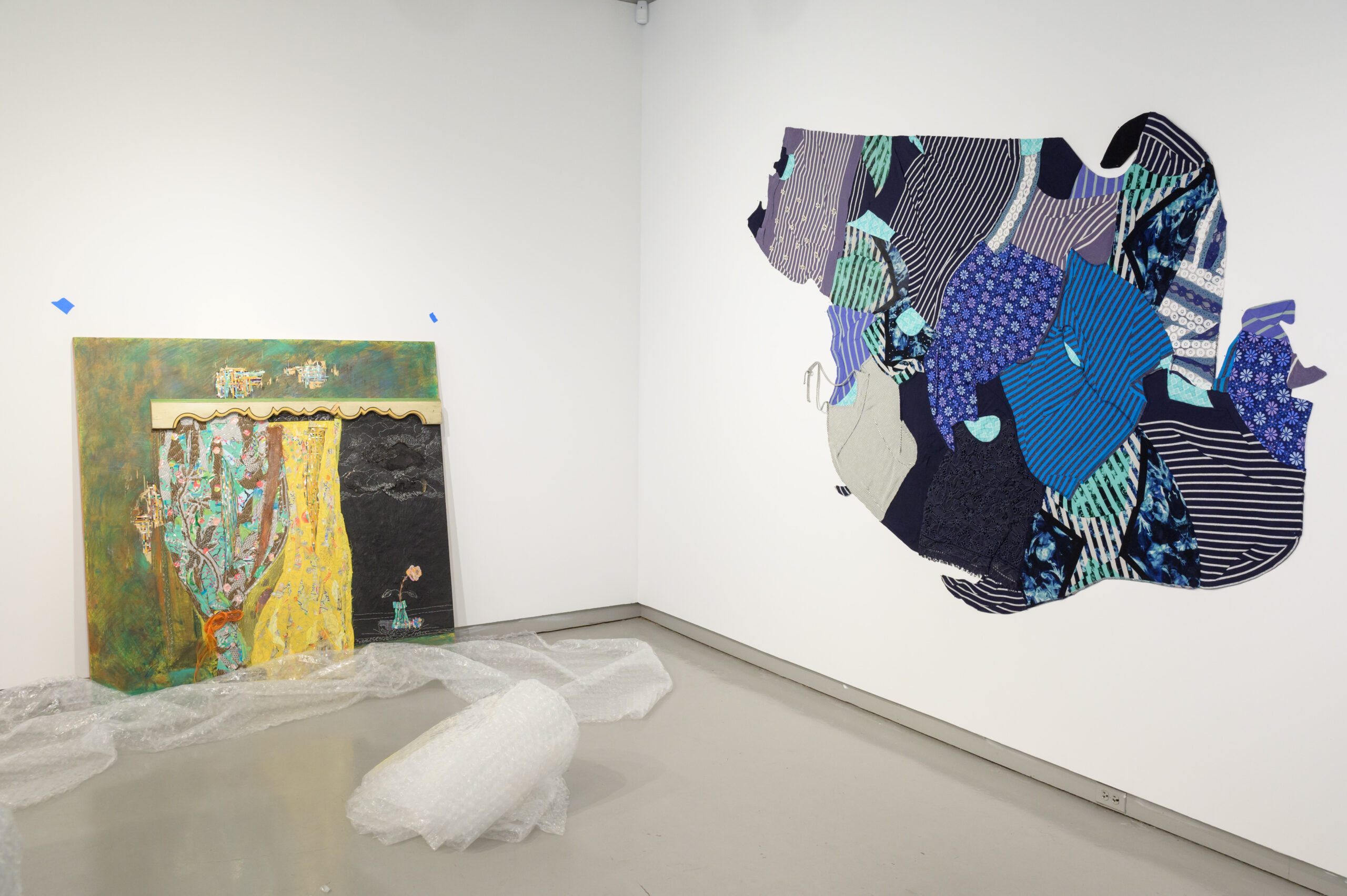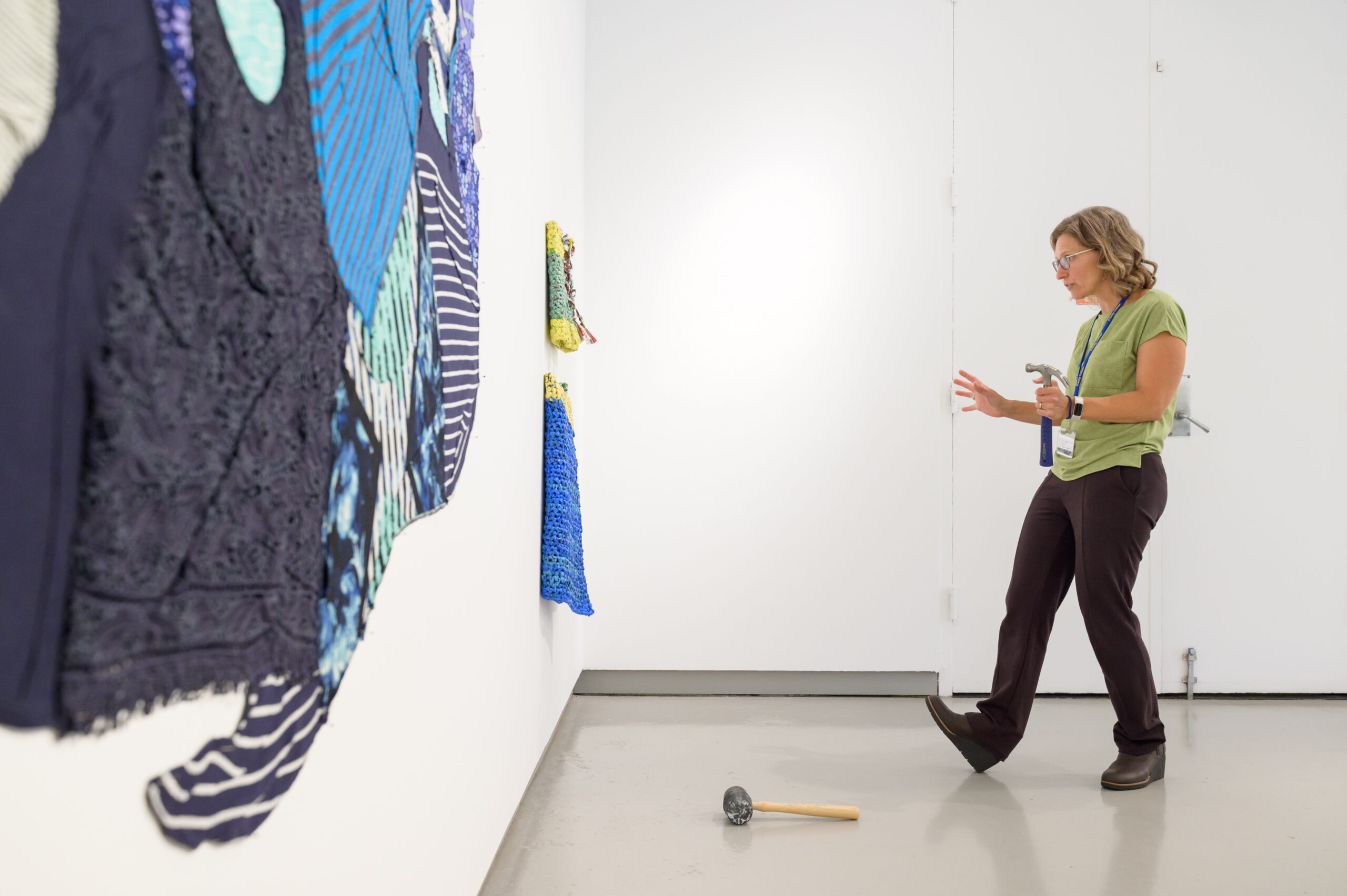Discarded objects and materials will be in the spotlight later this month when the Widener Gallery opens its aptly titled installation, Detritus.
Detritus brings together four New England artists—three from Connecticut and one, Maine—for the exhibit, which runs from September 16 through October 28. A reception will be held at the gallery located in the Austin Arts Center on September 19, from 4:00 to 6:00 p.m.
Faustin Adeniran, Marsha Borden, and Kathryn Frund, of New Haven, Connecticut; and Ian Trask of Maine, each consider the complex relationship between nature and humanity. Their work addresses what we throw away as a reflection of individual and collective values. The environmental implications of our disposable culture are key to much of the work.
Faustin Adeniran’s work is rooted in transformation. He repurposes and manipulates discarded objects, inviting viewers to reconsider their relationships with consumption and waste. Adeniran believes, “if you want to learn about a society, look at what it throws away.” Recontextualizing overlooked everyday items to create a dynamic vocabulary, his work subverts Western sensibilities imposed through colonization, including in his native Nigeria. According to Adeniran, this series “presents an unlearning of the desire to flaunt material wealth, enacting an awakening from a subconscious inferiority complex and unveiling the truest, highest self.” Adeniran’s art is both vulnerable and carefully conceived. It reflects the vibrant palette of our interwoven humanity and points to the possibility of healing.
Central to Marsha Borden’s work is the duality of modern mass production. Focusing on the interplay between the disposable and durable, the worthless and cherished, she crochets single-use plastic bags into clothing and heirloom quilts “guaranteed to last 100 years or more.” Similarly, by manipulating plastic shopping bags with stitching and embroidery, she treats them as precious objects to be cherished, emphasizing the hypocrisy of single-use objects’ durability and cheaply manufactured textiles’ low quality.
Kathryn Frund’s fiber installations address the repercussions of consumer culture on our oceans. She intercepts synthetic clothing, a product of fast fashion and the petroleum industry, from the waste stream. In her nautical maps, she cuts, contorts, and stretches these fabrics to give form to bodies of water, assigning primary focus to what traditionally appears on world maps as a void. Through this act of altering and recombining, she explores the ideas of transcendence and restitution.
Ian Trask’s work combines a curiosity about the adaptation and resilience found in the natural world with his concern for material waste. Intrigued by our shifting perceptions of what is needed or valued, he repurposes trash as artist materials in a continual process, mimicking natural systems of transformation and rejuvenation. In We’re Not Going Back, he reinvents colorful spheres created from discarded objects into a new configuration, transforming trash into sustainable, multifunctional material.
Exhibition curator and Widener Gallery Director Lisa Lynch says that Detritus addresses an urgent need for change.
“Art exhibitions focusing on environmental issues have been permeating museums and galleries in recent years. It is not a coincidence that the immediate and widespread focus among artists and art institutions coincides with a seemingly exponential increase in extreme environmental events. It seems an apt time to present an exhibition that draws attention to our culture of expendability and its ramifications.”
The Widener Gallery is open Monday through Saturday from 1:00 to 5:00 p.m., and by appointment.
Photos: Mounting the Exhibit
Photos: Mounting the Exhibit
Artist Ian Trask mounts his portion of the exhibit.
Widener Gallery Director Lisa Lynch works with Studio Arts Technical Director Joe Transue.
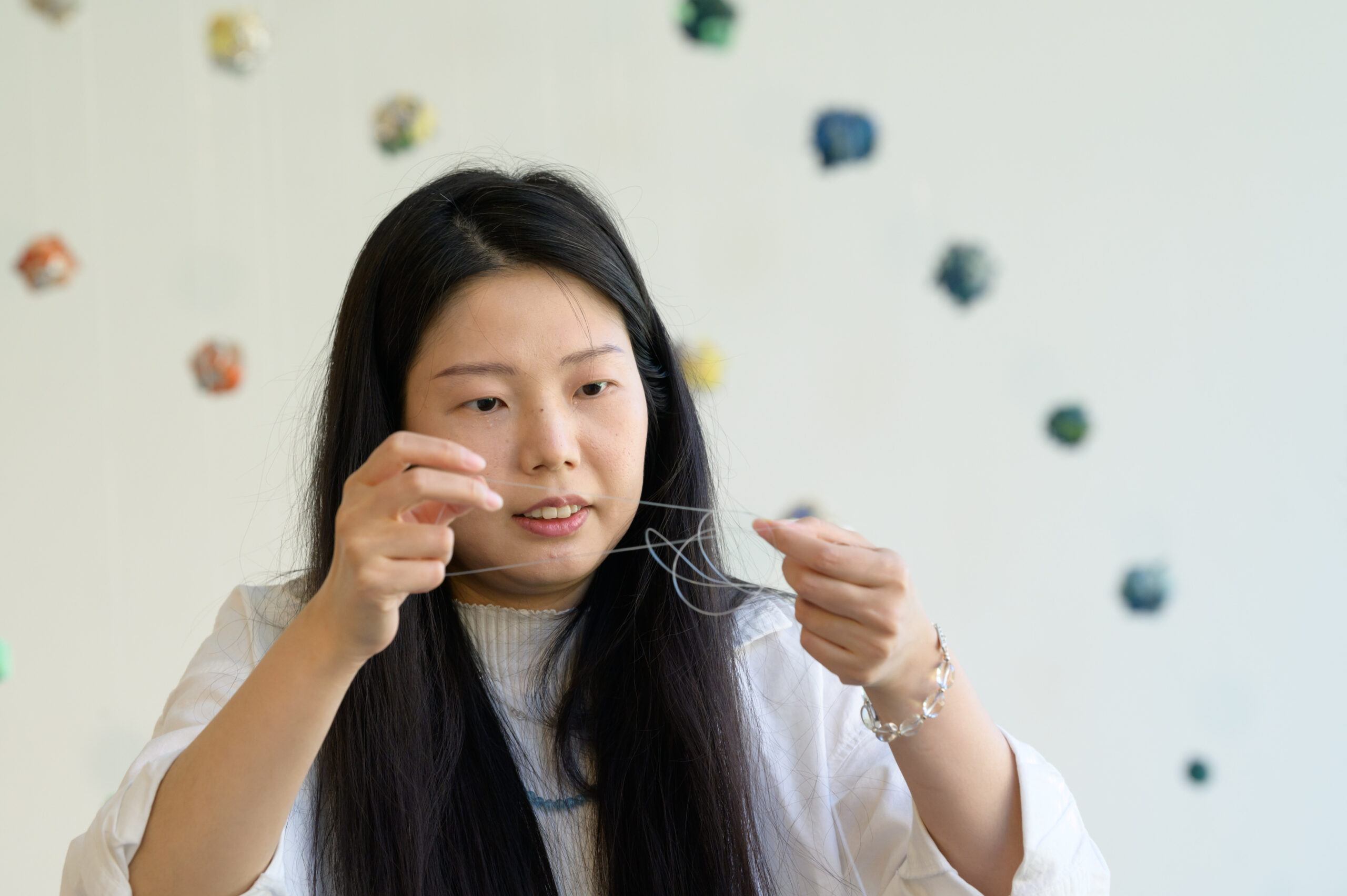
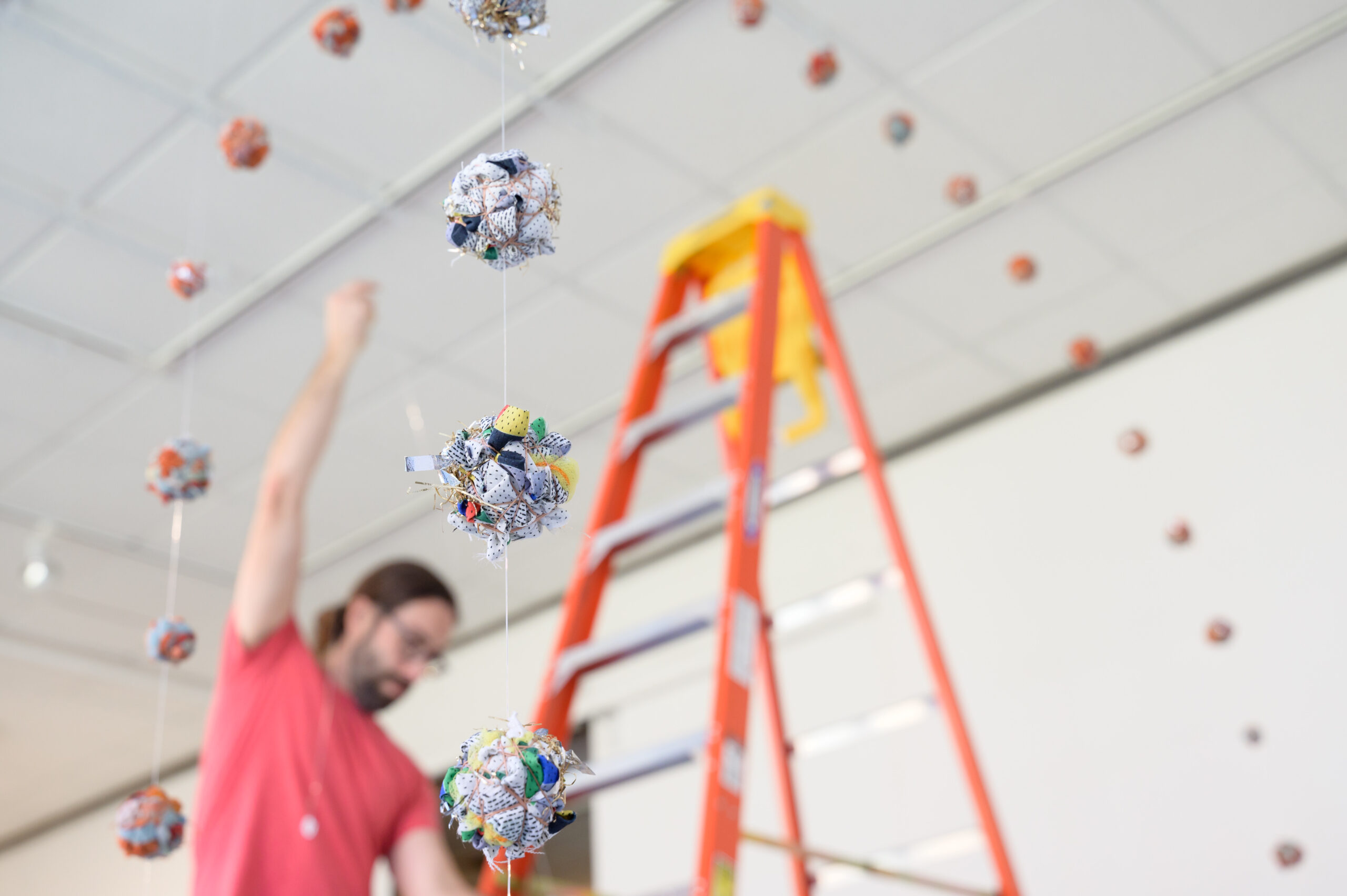
Artist Ian Trask mounts his portion of the exhibit.
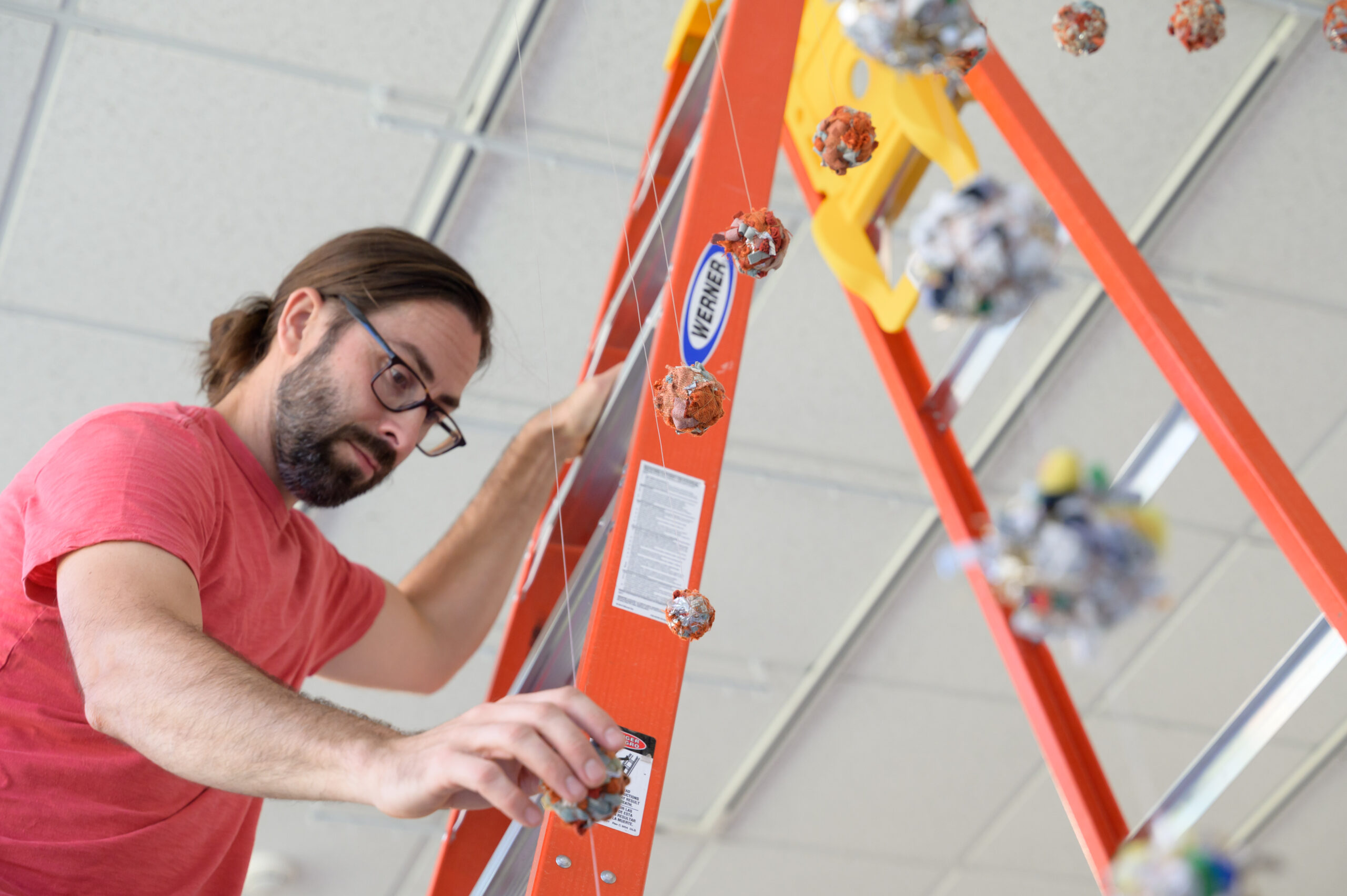
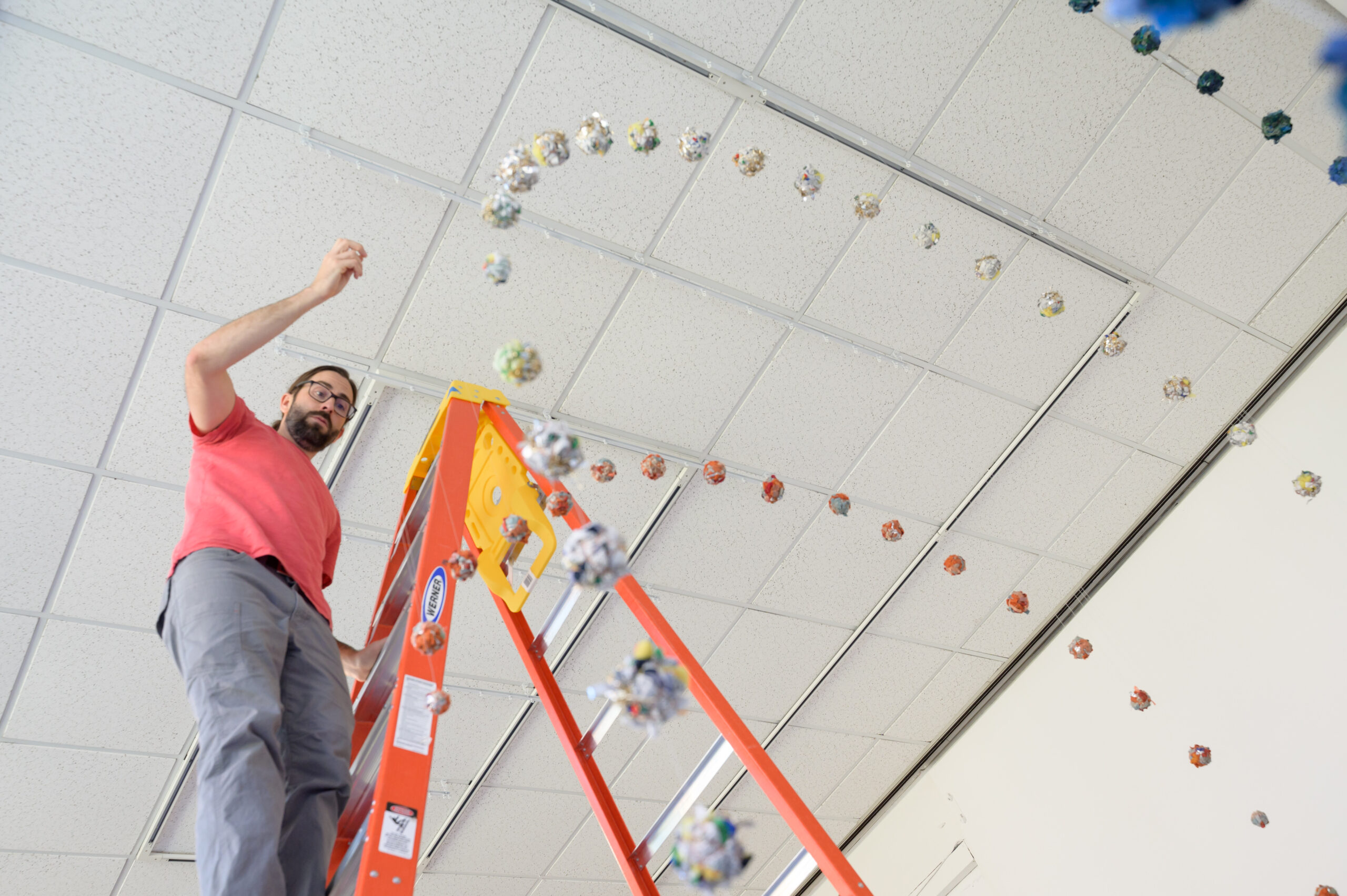
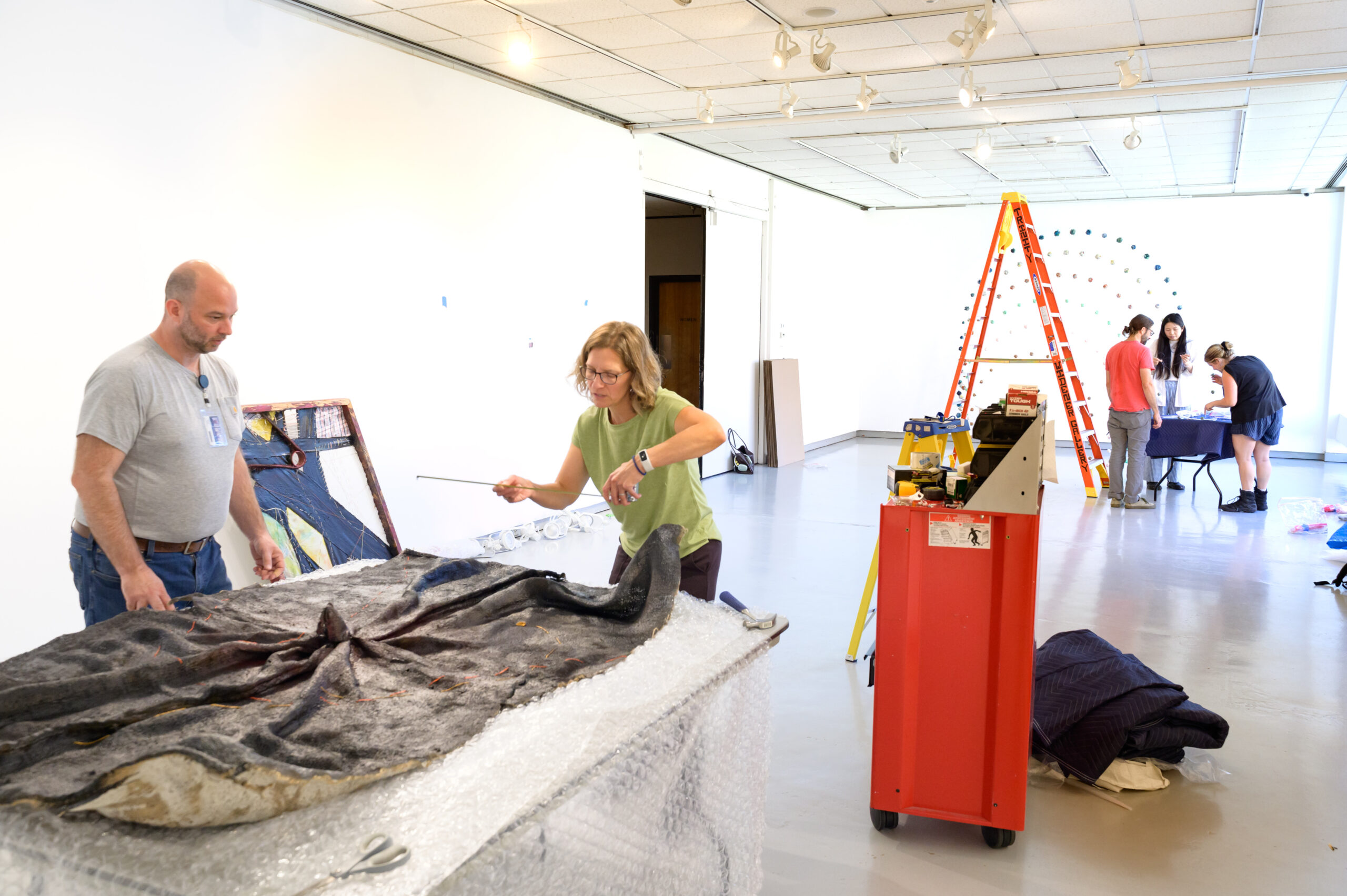
Widener Gallery Director Lisa Lynch works with Studio Arts Technical Director Joe Transue.
